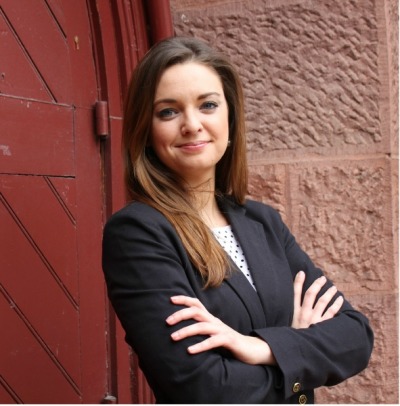Did Russell Moore Really Denounce Reparative Therapy for Same-Sex Attraction?

Reparative therapy is a hot button, cultural topic that stirs deep rooted emotions for those on both sides. So we must be cautious not to reduce what Dr. Russell Moore, President of the Southern Baptist Convention's Ethics & Religious Liberty (ERLC) Commission, says about it into a sound bite.
Taken out of context, Moore's remarks to press at the ERLC's 2014 conference this week could very easily be used to totally denounce reparative therapy. But if you read all of Moore's statements, nowhere do you find him downright rejecting reparative therapy. Instead, he's putting it in its place on the hierarchy of healing.
According to Religion News Service, Moore told journalists, "The utopian idea if you come to Christ and if you go through our program, you're going to be immediately set free from attraction or anything you're struggling with, I don't think that's a Christian idea." Moore continued, "Faithfulness to Christ means obedience to Christ. It does not necessarily mean that someone's attractions are going to change."
It sounds like Moore is saying that when you find out your child has same-sex attraction, your first step should not be placing them into reparative therapy. If you do, then you've missed the only step that's actually going to help: yielding to Jesus Christ who calls us to love everyone without conditions. As Moore put it, "The response is not shunning, putting them out on the street," he said. "The answer is loving your child."
I agree with Moore that therapy is not the immediate solution. Our liberation from sin is found in Jesus Christ alone. And I will go further to say that some reparative therapy programs have done more harm than good because they are operated by mere mortals with their own flaws and who are more dependent on a 12-step course than on Christ.
My concern is that Moore's words will be misinterpreted so that licensed Christian therapists who reach out to the LGBT community will be ridiculed or dismissed. There are Christian therapists who are ministry-minded as they work to help heal the wounds of same-sex attracted individuals dealing with trauma of sexual abuse, confusion or depression because of their attractions. These therapists are called to a special mission-field all their own and need to be supported.
My larger fear is that we will also dismiss self-described ex-gays who are no longer tempted by same-sex attractions. Through the power of an encounter with Jesus Christ, their temptation has been wiped away. Praise God for that. And we might also dismiss persons dealing with same-sex attractions who are staying committed to God and resisting those attractions through the power of the Holy Spirit. Praise God for that, too.
For this reason I reached out to Christopher Doyle, Co-Founder and President of Voice of the Voiceless, an organization dedicated to defending "the rights of former homosexuals, individuals with unwanted same-sex attraction, and their families." Doyle, himself an identifying ex-gay now husband and advocate, shared with me:
"Moore's comments that the "idea that one is simply the sum of one's sexual identity is something that is psychologically harmful ultimately' is a statement I completely agree with - my clients come to me and my colleagues distressed about unwanted homosexual feelings, but it's not the sexual feelings we treat or seek to change. Homosexual feelings are often the result of underlying sexual trauma or emotional detachment from same-sex peers and parents - when individuals realize the source of their feelings and pursue healing in their lives, change happens. Change happens in the pews, and change happens in the counseling office. I don't think we should limit God's power to heal, transform, and change - after all, if God is the source of all truth, then why can't He use psychology to help us heal?
This past Monday night, I worked with over twenty Christian men from all over the world who are conflicted about their unwanted same-sex attraction (SSA) in an online support group called Joel 2:25. These men are confronting their wounds, healing with other Christian men, and learning to form emotionally healthy relationships with other men. God is at the center of this therapy, because these men are surrendering their sexual desires for a higher pursuit - and that is not heterosexuality, it's healing, and God is in that safe place. In my work with the International Healing Foundation, so much of our ministry is dedicated to working with church leadership to help them better understand how to minister to those who experience SSA - we're helping them transform their pews from one of judgment and condemnation to hope and healing. This is not a "utopian idea" of changing people, but rather, loving them where they are at and helping them pursue healing.
My desire is for Russell Moore to sit down with me and so many of these men that I know who's lives have been transformed because of Christian therapists who understand how to help those struggling with unwanted SSA so we can better help the church in their ministry towards those struggling with homosexuality."
A friend of mine recently told me, "None of us gets to choose what we're tempted by; we only get to choose how we respond to that temptation." How true for all of us. We don't have women's Bible studies to completely erase our temptation to sin, do we? No. We have women's Bible studies to receive accountability, gain righteous wisdom and learn more about Christ so that we can better resist whatever tempts us.
At its root, we sin out of our broken human nature— no matter the sin. And as I've learned, it is only the Almighty, through Christ's sacrifice, who can restore that brokenness.




























